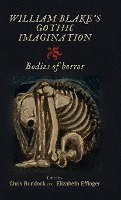The Gothic is haunted by the ghost of William Blake. Scholars of the Gothic have long recognised Blake's affinity with the genre, often invoking his name, characters, and images in passing. Yet, before now, there has been no major scholarly study focused on Blake's intersection with the Gothic. William Blake's Gothic imagination seeks to redress this disconnect and, in the words of another ghost, 'lend a serious hearing' to a dimension of Blake's work we all somehow know to be vital and yet which remains understudied. The essays in this book do not simply identify Blake's Gothic conventions but, thanks to recent scholarship on affect, psychology, and embodiment in Gothic studies, reach deeper into the tissue of anxieties that take confused form through this notoriously nebulous historical, aesthetic, and narrative mode. The collection opens with chapters touching on literary form, history, lineation, and narrative in Blake's work, establishing contact with major topics in Gothic studies. The volume, however, eventually narrows its focus to Blake's bloody, nervous bodies, through which he explores various kinds of Gothic horror related to reproduction, anatomy, sexuality, affect, and materiality.Rather than his transcendent images, this collection attends to Blake's 'dark visions of torment'. Drawing on the recent interest in Gothic studies on visual arts, this volume also highlights Blake's engravings and paintings, productions that in both style and content suggest a rich, underexplored archive of Gothic invention. This collection will appeal to students of Romanticism, the Gothic, art history, media/mediation studies, popular mythography, and adaptation studies.

